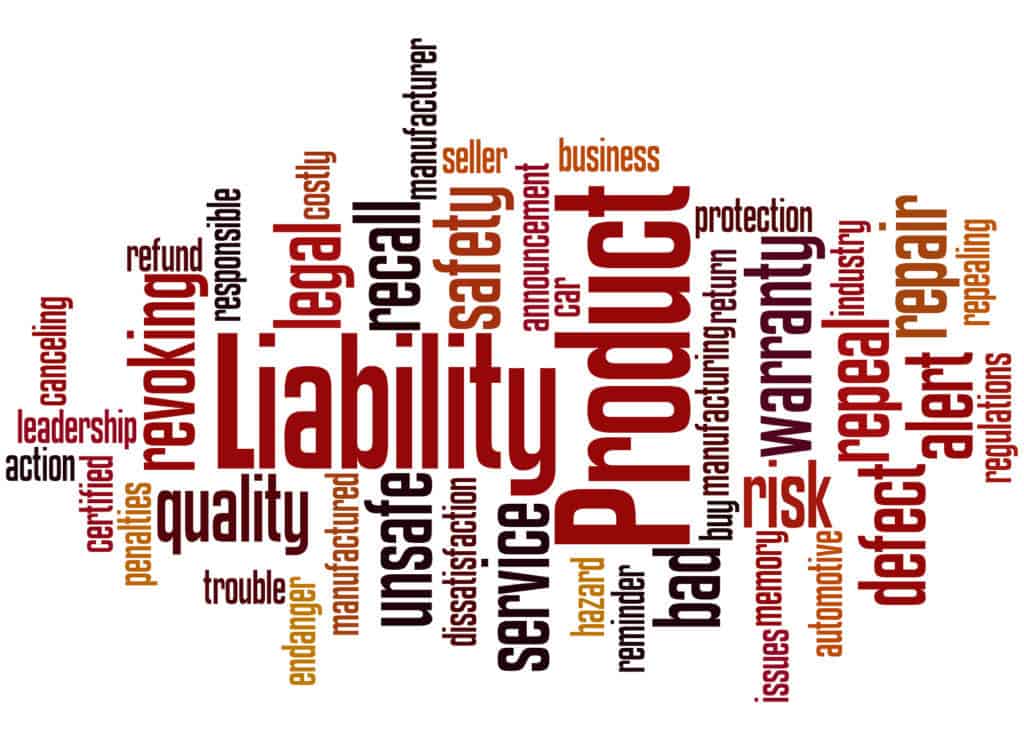Manufacturers, product designers and sellers can be at risk in product liability claims. Product liability claims are a threat to small businesses, with many claims exceeding the six figure mark. Businesses have a responsibility to consumers to ensure their safety when using a product under normal conditions.
The Federal Trade Commission protects consumers that suffer injuries due to product liability, and there are also industry-specific regulations that are of concern.
Businesses, especially small businesses, must take every measure to lower the risk of product liability claims. Settlements exceed $12 billion a year in product liability with claims rising, as some companies, such as Johnson & Johnson, faced billion dollar fines for product liability last year.
The following procedures can help protect your business from product liability:
1. Product Testing
Thorough product testing must be done to determine product defects. A company that can show that they do the following will better protect themselves from lawsuits:
- Conduct effective product testing on their products
- Retest products often
- Recall products quickly
Product liability is such that the entire distribution chain may be named in a lawsuit. For example, you purchased a product to sell to consumers from Company A. Company A outsources the manufacturing of the product to Company B.
When a claim is filed, Company A, B and your company will all be named in a lawsuit.
Proper research and testing alleviate these risks for all parties involved. If your small business designs products, you must ensure that the manufacturer has strict protocols in place to test their supply chain, too.
Testing, retesting and evaluation can significantly reduce the risks of a product liability lawsuit against your business.
2. Review All Suppliers
If product testing taught us anything, it’s that there is a dire need to review all suppliers. Your business can be sued for the fault of a supplier. Your business must implement procedures to:
- Review supplier products
- Review supplier procedures
- Review supplier processes
Defects prior to supply can also be the responsibility of the supplier when a proper contract is drafted and states that the supplier takes financial responsibility for products and parts supplied to your business. If the defects were a result of the supplier’s negligence and not the negligence of your company, they will be held to the contract that’s been signed.
Question suppliers about their quality assurance measures and the steps that have been taken to ensure their supply chain protects against product liability.
3. Dangerous Goods Warnings
Dangerous goods require proper and effective warnings on product labels. Consumers of your goods need to be made aware of any and all potential dangers from using the goods. A prime example of this is tobacco companies.
There was a time when these major corporations didn’t provide product warnings on cigarettes.
In many cases, the companies knew of the potential dangers of smoking. The public, however, lacked the proper warnings that allowed them to know the extent of damage that cigarettes can cause. Lawsuits began to change the industry in the 1950s.
Lawsuits continue today due to leaks finding that tobacco companies knew of the addictive nature of their products despite never revealing them to consumers.
Philip Morris was ordered to pay a smoker, suffering from inoperable lung cancer linked to smoking, $51.5 million dollars.
States also sued tobacco companies, arguing that the companies knowingly put a stress on public health systems. Four of the largest tobacco companies settled with 46 states offering a minimum settlement of $206 billion over 25 years.
Advertising practices and campaigns geared towards kids were also banned.
Three of the industry’s largest organizations were also dissolved following the settlement.
Proper warning labels on cigarette boxes could have lowered the occurrence of product liability cases against big tobacco companies saving them hundreds of billions of dollars in the process.


